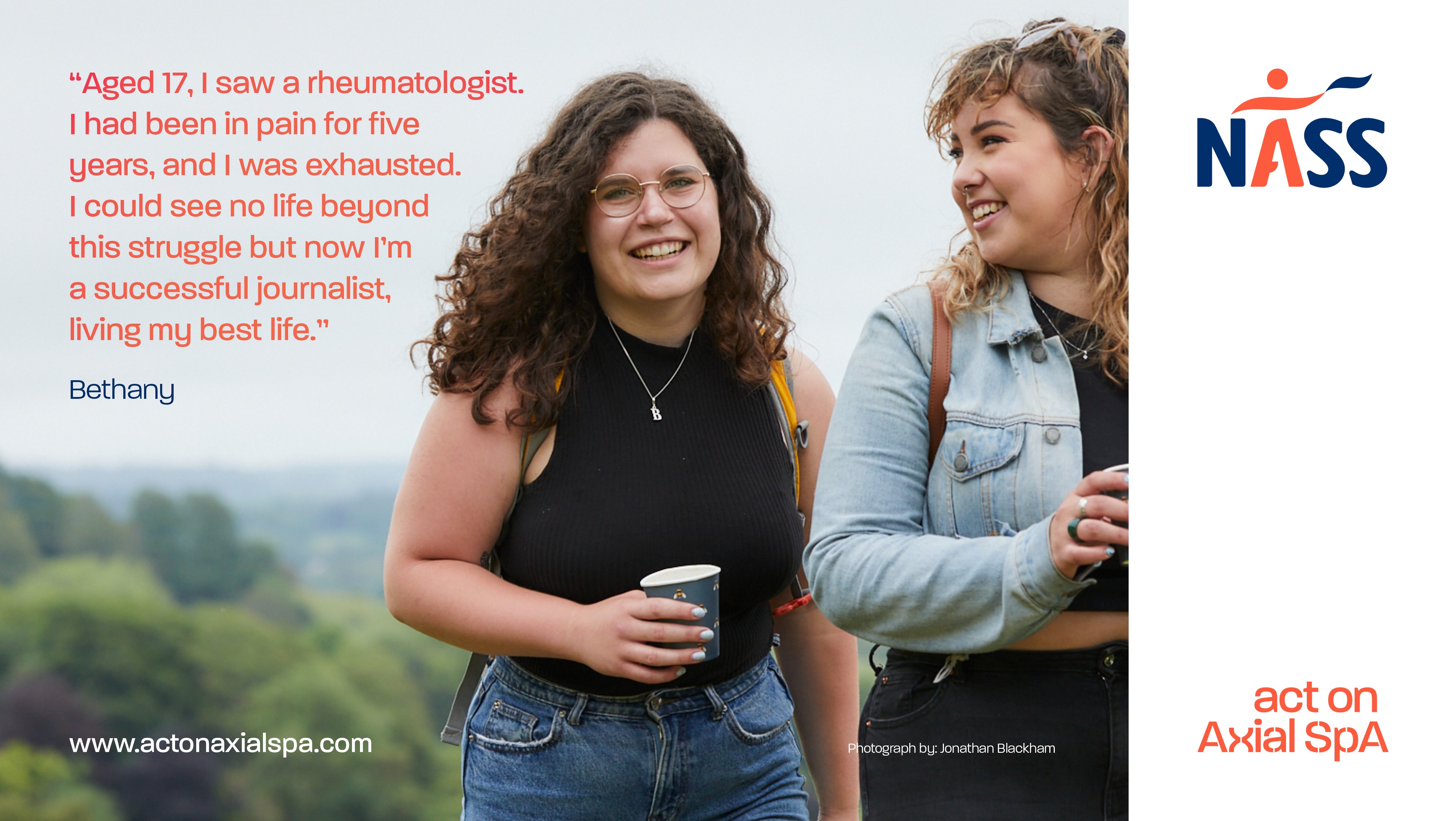
“At the age of 17, I saw a rheumatologist. At this point I had been in pain for five years, and I was exhausted. I could see no hope of living in any other way, I could see no life beyond this struggle but now I’m a journalist, in a job I love, living my best life.”
When I was 13 years old, I had surgery to remove two skin tumours, one was on my right axilla, and one was on my lower back. It was a relatively standard procedure, so at the time, we had no cause to be concerned.
After surgery, the pain lasted much longer than I’d expected. I went back to my surgeon a few months later and he referred me to a pain management clinic who told me I had nerve damage. That made sense as it was around the spot of the incision. Over the course of a year or so, the pain moved from the base of my spine to other areas in my back and my hips.
I kept telling the multi-disciplinary team that I didn’t think it was nerve damage. Their theory was I wasn’t moving as much as a, then, 14-year-old should. We tried every medication possible that was available for someone with neuropathic pain, but nothing worked.
I kept trying to say that something was wrong and every time I would leave appointments feeling like no one was listening to me. Every day was a battle, dealing with the pain and the fact that nobody could tell me what was wrong.
I was with that medical team until I was 16, which was when they discharged me. I was on my own and I was in pain. The only thing that had changed was them, not me. So, I went to a GP and told my story. By this stage the pain had spread and was in my hips, knees, back – everywhere. The GP immediately spotted that a relatively small surgical procedure on my back should not have caused so much pain. That was the start of years of blood tests and X-rays and MRIs.
It got to the point where most of my body, if not all of it, had been scanned and nobody could give me an answer.
“Maybe, you’ve broken your spine.”
“Perhaps, you’ve got a thyroid issue.”
“It might be a neurological problem.”
I heard so many different theories.
Then, at the age of 17, I saw a rheumatologist. At this point I had been in pain for 5 years, and I was exhausted. I could see no hope of living in any other way, I could see no life beyond this struggle.
The rheumatologist told me it was all in my head: “Everyone experiences pain, you’re just processing it differently”.
I remember so clearly sitting in that room with that medical team. I told them I’d spent my entire school years in pain. I wasn’t doing normal things like PE, going out with my friends, I was doing my exams, but I was in agony.
Some people thought that because my brother lives with a disability, I was looking for attention. Others thought I was just overdramatic.
Then I saw a different rheumatologist and he was the first person to say: “Have you heard of axial spondyloarthritis?”
He gave me an MRI of my spine to look for it and couldn’t find anything, I didn’t have the gene (HLA-B27) either. At this point I was being asked questions about the level of my pain and I couldn’t answer properly – pain had been my reality for such a long time I didn’t know what was normal and what wasn’t.
I was asked about whether I experienced stiffness in the morning which eased with exercise – I did, and it was for this reason that people had dismissed the pain, because I seemed so fine when I was up and about!
At this point the rheumatologist diagnosed me with non-radiographic axial spondyloarthritis.
I had mixed emotions. I was over the moon to have an answer but all I really wanted to get a diagnosis and a magic pill to cure me. Sadly, that wasn’t possible. But, at this point, I was introduced to anti-inflammatories and biologics which made a huge difference.
I’m not going to pretend it was nice figuring out that axial SpA was incurable but now, I knew there were ways to manage it, which was a huge relief.
I’ve accepted the pain and am determined to do everything I want to do. These days, I do a lot of exercise, which helps with the pain.
I’m proud of where I’ve got to today, despite everything. I’m 22 now, I’ve just finished my degree in Politics and Sociology at the University of Surrey, and I’ve secured a full-time job as a journalist for a national publication. I love live music, going on adventures, travelling, exploring, climbing trees, writing, reading and playing with my dog. I spent so much time doing nothing in my teens, while I waited for a diagnosis that I do everything now. I have a very happy life, a busy life.
My axial SpA is always there but it doesn’t control my life like I used to think it would.
“My AS is always there but it doesn’t control my life like I used to think it would.”

